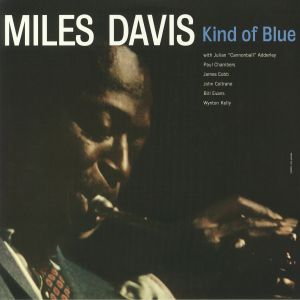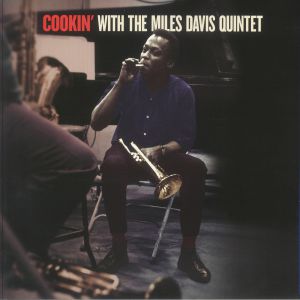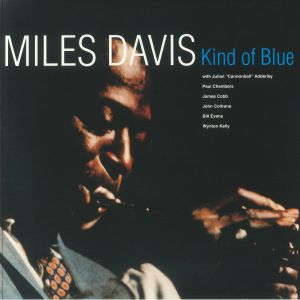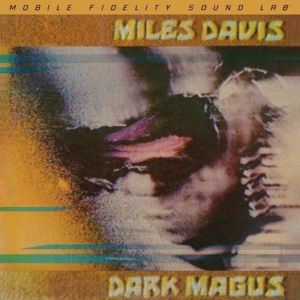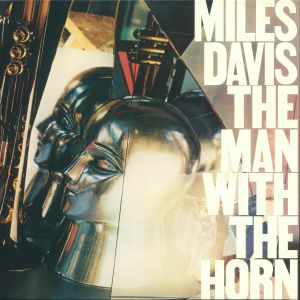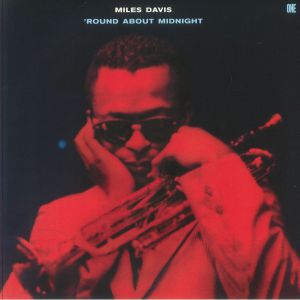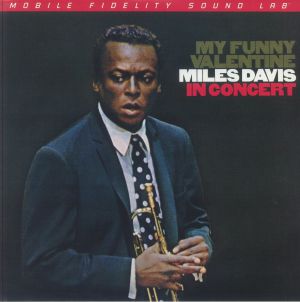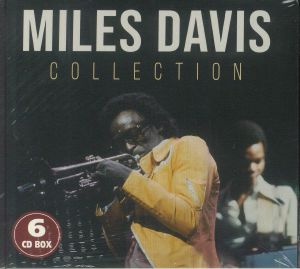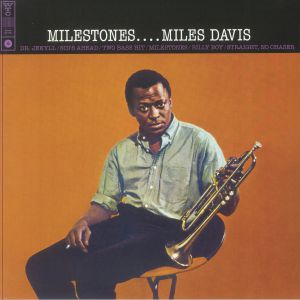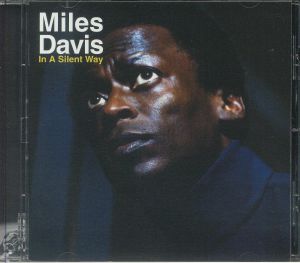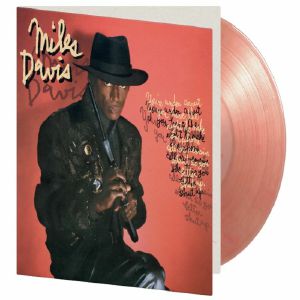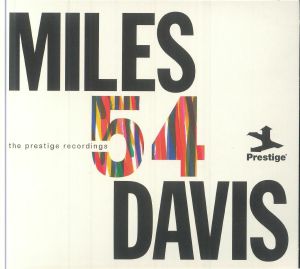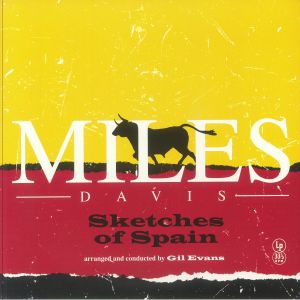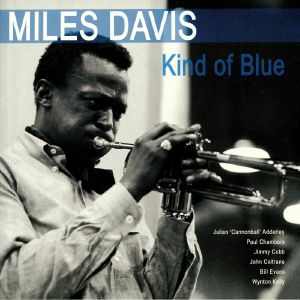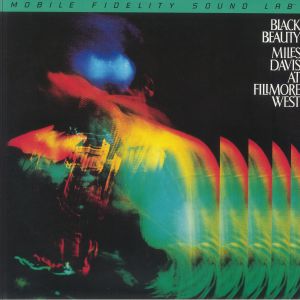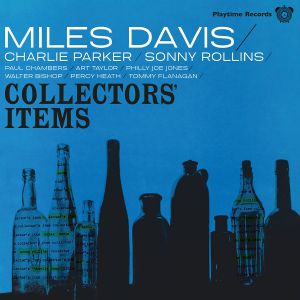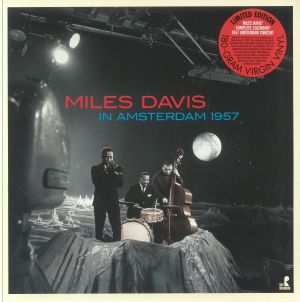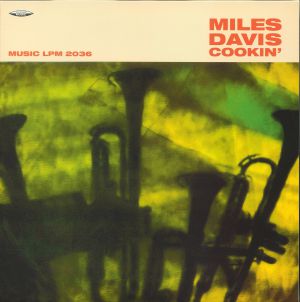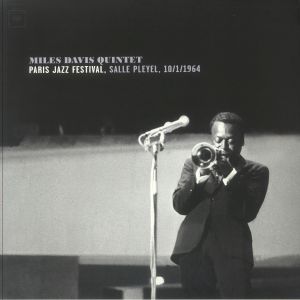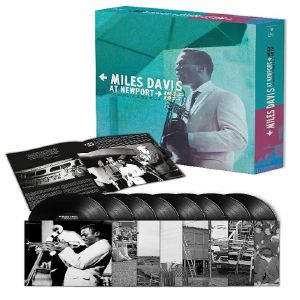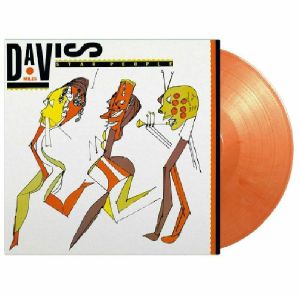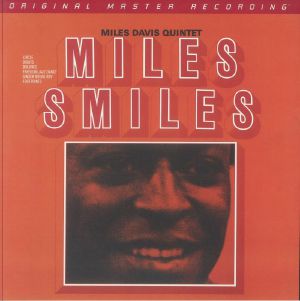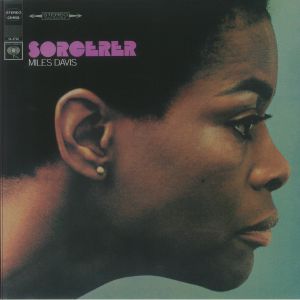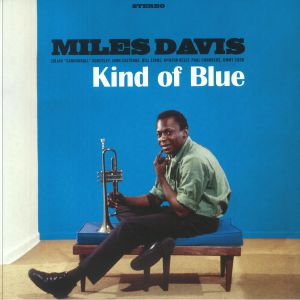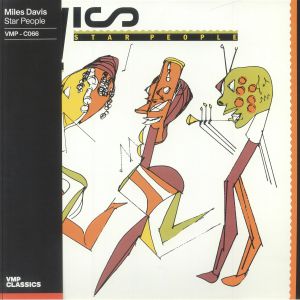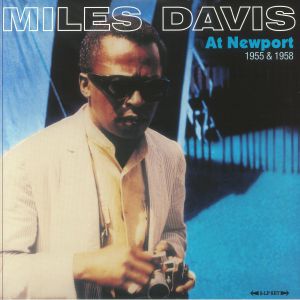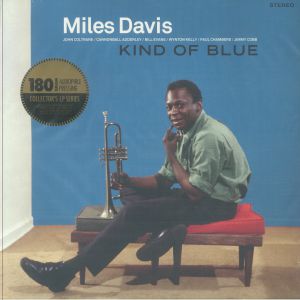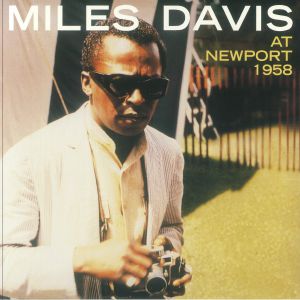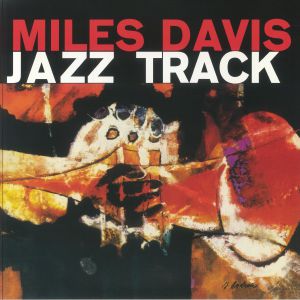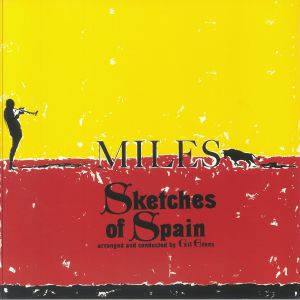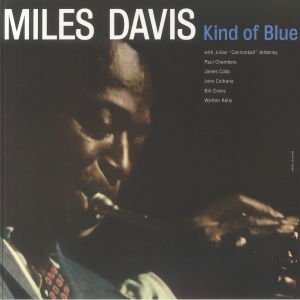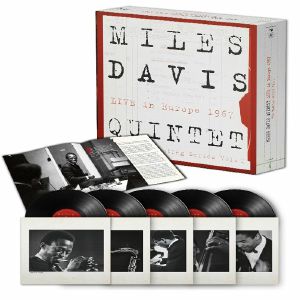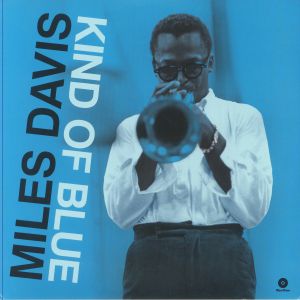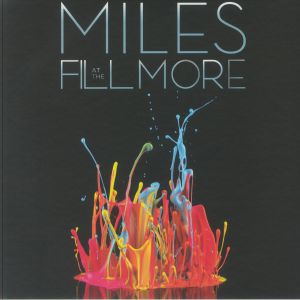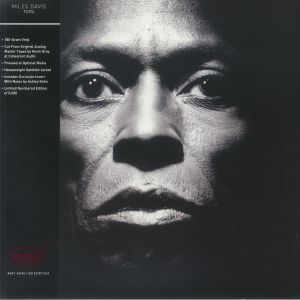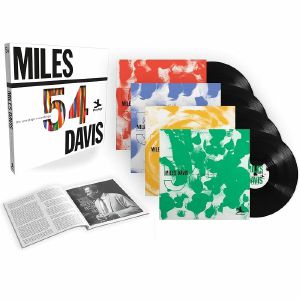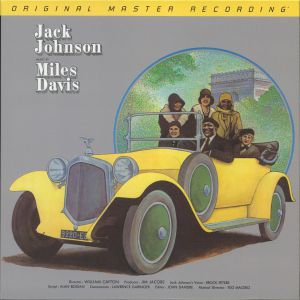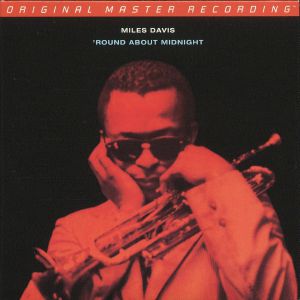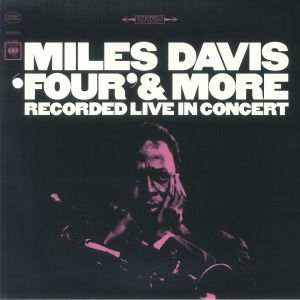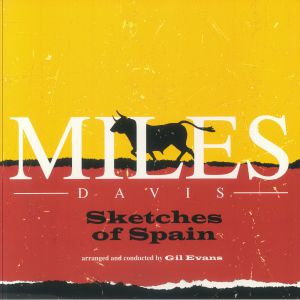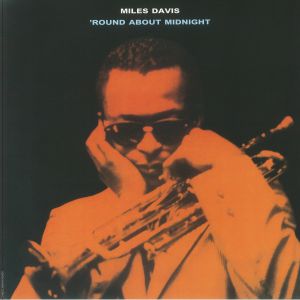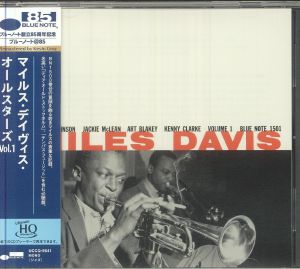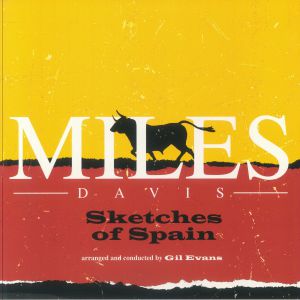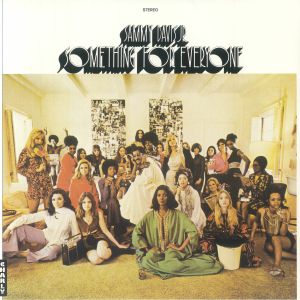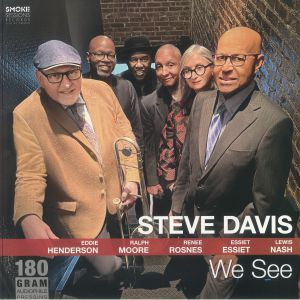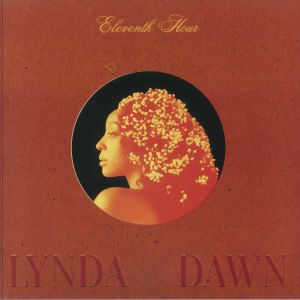Filter
在庫状況
Release Date
アーティスト
リリースタイトル
値段
タグ
Back catalogue: Funk Soul & Jazz
Juno's full catalogue of Funk Soul & Jazz
アルバム
The Musings Of Miles (Original Jazz Classics Series) (180 gram vinyl LP with obi-strip)
Cat: CR 00854. Rel: 17 Apr 25
Review: This early gem - in fact, it was the maestro's first ever 12" record - shows a masterful command of space and melody, spotlighting a warm, muted trumpet tone alongside a pared-down ensemble. Without a saxophone, the spotlight remains squarely on the lead, providing ample room for expansive solos and lyrical interpretations. Anchored by a stellar rhythm section featuring a buoyant bassist, impeccable pianist and dynamic drummer, the performances exude a relaxed yet precise energy. Highlights include a fresh, distinctive take on the Dizzy Gillespie classic 'A Night in Tunisia', where the group reimagines the piece with effortless ingenuity. Original compositions add further depth, with a witty riposte to a well-known standard and a contemplative piece that lingers in the listener's mind. A transitional moment for one of the all time greats, hinting at the greatness to come all the way back in 1955.
… Read more in stock $39.80
Played by: Juno Recommends Jazz
in stock $13.26
Cookin' With The Miles David Quintet (reissue) (180 gram translucent blue vinyl LP)
Cat: 350281. Rel: 07 Apr 25
Review: Miles Davis' quintet was formed in 1955 and soon after began impressing the jazz world with the sort of invention that eventually saw them hailed as one of the greatest in history. Each member - including Miles on trumpet, John Coltrane on tenor sax, Red Garland on piano, Paul Chambers on bass and Art Taylor on drums - was a creative force in their own right. Cookin' proved that and came on Prestige as the first in a series of four albums, later followed by Steamin', Workin' and Relaxin'. These albums were recorded during two highly productive sessions in May and October of 1956 and the quintet's groundbreaking work explored a dynamic blend of improvisation, technical skill and innovative jazz exploration.
… Read more in stock $17.69
Review: What is there left to be said about this album? It is (probably) one of the most pressed and reissue of all-time and for good reason - it set a new standard for jazz and appeared to both hardcore lovers of the genre as well as those with only a passing interest. No matter your view of jazz, it is hard not to be moved by the feathery drums and wandering bass of opener 'So What', or the expressive horns of 'Freddie Freeloader' over nimble piano fingers that dance so delicately about the keys. 'All Blues' is a study in melancholy and 'Flamenco Sketches' brings a hint of South American sunshine into this most moving and intimate of jazz records.
… Read more in stock $17.43
Dark Magus: Live At Carnegie Hall 1974 (limited gatefold numbered 180 gram audiophile vinyl 2xLP)
Cat: 198028 170314. Rel: 25 Feb 25
Review: Captured live in 1974, this performance at Carnegie Hall showcases Miles Davis at the height of his electric fusion era, blending jazz with rock in a fierce, exploratory manner. The show features the monumental 'Moja' and 'Wili,' each spread across two parts, with the band improvising freely and building intricate, pulsating rhythms. Davis's trumpet and organ create a swirling, unpredictable sound, while the guitar work from Pete Cosey and Reggie Lucas adds texture and energy. Tracks like 'Tatu' and 'Nne' display Davis's shift towards African-inspired sounds, experimenting with complex rhythms and haunting melodies. This is a tour de force, an unfiltered snapshot of Davis's creative genius.
… Read more in stock $74.38
The Man With The Horn (reissue) (limited numbered 180 gram gold & black marbled vinyl LP)
Cat: MOVLP 3759C. Rel: 24 Sep 24
Review: Predating Herbie Hancock's landmark electro experiment 'Rockit' by two years, this 1981 album from the legendary Miles Davis may reference his his 1952 10" LP Young Man With A Horn in its title, but there's nothing traditional or retro about its sound. Having been tempted out of a six year hiatus by his nephew Vince Wilburn, Miles incoporated brand new synth and programming technology into his sound and elements of funk, soul and fusion jazz into the finished article, which features both tracks with Wilburn's band and others featuring saxophone player Bill Evans, bassist Marcus Miller and drummer Al Foster. It's not your average Miles album by a long chalk, but quite a fascinating insight into how the legend refeused to rest on his creative laurels all the same.
… Read more in stock $28.48
Round About Midnight (180 gram audiophile vinyl LP)
Cat: 291020. Rel: 13 Mar 25
in stock $16.31
My Funny Valentine: In Concert (reissue) (limited numbered 180 gram audiophile SuperVinyl LP)
Cat: MFSV 1520. Rel: 03 Mar 25
Review: As it is the month of love - or another overbearingly capitalist instruction to treat people for the sake of it, depending on your viewpoint - why no indulge in some loved up jazz from Miles Davis? My Funny Valentine captured delicate ballads and was met with immediate critical successes. It is an album that demonstrated profound emotion with minimal fuss and represents a high point in Miles Davis' early 1960s career, capturing the excitement and sound of a road-honed group at its peak. Herbie Hancock's piano intros, George Coleman's melodic tenor, Ron Carter's steady bass, and Tony Williams' unexpected drumming contributed to an unforgettable collective sound.
… Read more in stock $75.20
Collection (6xCD box set (no sound files available))
Cat: 115612 2. Rel: 21 Nov 24
Agitation (CD 1: 1969)
This
Round Midnight
I Fall In Love Too Easily
Masqualero
Bitches Brew
Miles Runs The Voodoo Down
Footprints (CD 2: 19667)
Round Midnight
No Blues
On Green Dolphin Street
Riot
Masqualero
Directions (CD 3: 1970)
Miles Runs The Voodoo Down
Willie Nelson
I Fall In Love Too Easily
Sanctuary
It's About That Time (CD 4: 1970)
Bitches Brew
Masqualero
Spanish Key - The Theme
He Loved Him Madly (CD 5: 1974)
Maiysha
Honky Tonk
Rated X
Calypso Frelimo (CD 6: 1974)
Red China Blues
Mtume
Billy Preston
in stock $25.16
in stock $16.31
in stock $6.08
You're Under Arrest (reissue) (limited numbered gatefold 180 gram audiophile red & clear marbled vinyl LP)
Cat: MOVLP 3823C. Rel: 29 Oct 24
in stock $28.48
in stock $19.35
Sketches Of Spain (reissue) (yellow vinyl LP)
Cat: VNL 22695. Rel: 28 Aug 24
in stock $16.03
Kind Of Blue (B-STOCK) (180 gram clear vinyl LP)
Cat: VNL 12201LP (B-STOCK). Rel: 01 Jan 90
B-STOCK: Split sleeve and creasing to corner
in stock $14.33
Black Beauty: Miles Davis At Fillmore West (limited numbered gatefold 180 gram audiophile vinyl 2xLP + booklet)
Cat: MFSL 2568. Rel: 04 Apr 25
Review: April 10, 1970. Miles Davis, fresh from his Jack Johnson sessions and with a new face in the band, soprano saxophonist Steve Grossman, take the stage at San Francisco's Fillmore West and set about sparking a revolution in jazz by fusing it with rock and funk elements. Captured on Black Beauty: Miles Davis at Fillmore West, this performance is one for the agesifull of explosive improvisation, raw energy and a palpable sense of transformation. The album, finally reissued on vinyl after years of being locked away in Japan, is a time capsule of a moment in jazz history where tradition was discarded and a new frontier was being built. With his usual crewiGrossman, Chick Corea on keys, Dave Holland on bass, Jack DeJohnette on drums, and Airto Moreira on percussioniDavis steered the ship into turbulent, unpredictable waters. It's all about the groove, the shifts in rhythm, and the untamed trumpet blasts that echo through the room like firecrackers. Tracks like 'Miles Runs the Voodoo Down' - from the milestone Bitches Brew album, which had come out a mere month before - and 'It's About That Time' tear apart the old jazz playbook, plunging deep into rock territory while still holding on to the open-ended freedom of improvisation. This is the raw, unfiltered jazz that would come to define the electric period of Davis' caree - a live-wire snapshot of a jazz legend finding new possibilities in real-time.
… Read more in stock $75.20
in stock $24.06
in stock $17.69
in stock $18.87
Paris Jazz Festival: Salle Pleyel 10/1/1964 ("french flag'" blue white & red striped vinyl 2xLP)
Cat: 198028 11341. Rel: 13 Dec 24
Review: Miles Davis' performance at the Paris Jazz Festival, Salle Pleyel, on October 1, 1964, is one of the many pivotal moments he was involved with in jazz history. The live recording features Davis' "Second Great Quintet," including Herbie Hancock (piano), Ron Carter (bass), Tony Williams (drums) and Wayne Shorter (tenor saxophone). This quintet pushed the boundaries of jazz with its innovative approach to improvisation and rhythm and the concert showcases Davis' evolving sound as he transitioned from his earlier modal work into more abstract, avant-garde territory. The setlist features dynamic interpretations of jazz standards and Davis' originals, both highlighting the ensemble's remarkable chemistry and individual brilliance.
… Read more in stock $42.31
At Newport 1955-1975: Bootleg Series Volume 4 (180 gram audiophile vinyl 8xLP box set + 12 page booklet + poster)
Cat: MOVLP 1500B. Rel: 20 Aug 24
Review: The Moon and the Melodies, a collaboration between Cocteau Twins and ambient pioneer Harold Budd, stands as a unique gem in both artists' discographies. Originally released in 1986, this ethereal album is now being reissued on vinyl, remastered from the original tapes by Robin Guthrie. Unlike anything else the Cocteau Twins ever produced, this record blends their dreamlike soundscapes with Budd's serene, improvisational piano work. The result is an atmospheric journey, at once intimate and expansive. Tracks like 'Sea, Swallow Me' shine with Elizabeth Fraser's otherworldly vocals, intertwined with Guthrie's shimmering guitar and Raymonde's grounding bass, creating a sound that feels both familiar and entirely unique. Instrumentals like 'Memory Gongs' and 'The Ghost Has No Home' highlight Budd's delicate piano, enhanced by the band's signature ambient textures. The album is a study in contrasts, vocal tracks sit alongside instrumentals, each contributing to a cohesive yet diverse listening experience. For fans, this reissue is a chance to revisit a pivotal moment in the evolution of dream pop and ambient music. The album's enduring appeal is evident in its continued influence in social media. The Moon and the Melodies remains a shining light that can happen when artists from different realms come together to create something truly timeless.
… Read more in stock $141.29
Star People (reissue) (limited numbered 180 gram audiophile orange & white marbled vinyl LP)
Cat: MOVLP 3764C. Rel: 11 Sep 24
Review: Star People by the legendary Miles Davis stands as a distinctive piece in his extensive discography, marking both beginnings and endings in his career. Notably, it introduces electric guitarist John Scofield, who was recommended by saxophonist Bill Evans, and features bassist Marcus Miller on several tracks. The album also signifies the final collaboration between Davis and longtime producer Teo Macero, as well as his last work with the renowned Gil Evans. This album showcases Davis's innovative spirit, particularly on the 18-minute title track, where he plays trumpet and Oberheim synthesiser simultaneously, creating an expansive blues composition without overdubs. The rhythm section, featuring guitarist Mike Stern, drummer Al Foster and percussionist Mino Cinelu, complements Davis's explorations with a dynamic groove. Star People also features live recordings like 'Come Get It' and 'Speak,' highlighting the energy of Davis's performances while pushing the boundaries of the LP format. The album's front cover, adorned with Miles's own artwork, and liner notes by jazz critic Leonard Feather, add depth to this unique release, and for fans of Davis's work from this era, Star People is a compelling listen with the innovative appeal of his late-career experiments.
… Read more in stock $28.48
Miles Smiles (reissue) (B-STOCK) (gatefold 180 gram SuperVinyl LP)
Cat: MFSV 1515 (B-STOCK). Rel: 01 Jan 90
B-STOCK: Sleeve damaged but otherwise in excellent condition
in stock $71.62
Sorcerer (reissue) (180 gram audiophile vinyl LP)
Cat: MOVL 6203247. Rel: 01 Jan 90
in stock $28.48
Kind Of Blue (reissue) (limited 180 gram "crystal" clear vinyl LP)
Cat: 526012. Rel: 07 Apr 25
in stock $18.25
Star People (reissue) (limited 180 gram audiophile vinyl 2xLP + booklet with obi-strip)
Cat: VMPC 066. Rel: 01 Jan 90
in stock $32.62
At Newport 1955 & 1958 (limited gatefold 180 gram audiophile vinyl 2xLP)
Cat: JWR 4635. Rel: 08 Aug 24
in stock $28.48
Kind Of Blue (reissue) (limited 180 gram audiophile vinyl LP)
Cat: 896704. Rel: 08 Aug 24
in stock $17.69
At Newport 1958 (reissue) (limited hand-numbered clear vinyl LP)
Cat: DMOO 064. Rel: 01 Aug 24
Review: This limited edition and hand-numbered reissue features the complete performance by the Miles Davis Sextet from the Newport Jazz Festival in July 1958. The ensemble, which is rightly one of jazz history's most celebrated, included Davis on trumpet, John Coltrane on tenor sax, Cannonball Adderley on alto sax, Bill Evans on piano, Paul Chambers on bass, and Jimmy Cobb on drums. Although this iconic lineup was short-lived, they made a truly lasting impact on jazz as they went on to record the legendary Kind of Blue album just six months later. As a special bonus, this release also includes rare broadcast performances by both the Miles Davis Quintet and Sextet from the same period.
… Read more in stock $16.58
Jazz Track (reissue) (limited clear vinyl LP)
Cat: DMOO 062. Rel: 10 May 24
in stock $17.15
Sketches Of Spain (reissue) (limited clear vinyl LP)
Cat: DMOO 060. Rel: 13 Jun 24
in stock $17.69
Kind Of Blue (reissue) (limited 180 gram blue cloudy vinyl LP)
Cat: SRPD 0019CL. Rel: 01 Oct 24
in stock $24.89
Live In Europe 1967:The Bootleg Series Vol 1 (180 gram audiophile vinyl 5xLP box set + booklet)
Cat: MOVLP 421B. Rel: 20 Aug 24
Review: Miles Davis' The Bootleg Series, Volume 1: Live in Europe 1967 is a monumental release, capturing the essence of one of jazz's most legendary ensembles. This 5xLP box set from Columbia/Legacy, featuring 180-gram audiophile vinyl, showcases previously unreleased live performances by Davis' second great quintetiWayne Shorter, Herbie Hancock, Ron Carter, and Tony Williams. The set documents five concerts from October and November 1967, a transitional period in Davis' career. While this quintet never achieved the pop-cultural impact of Davis' earlier or later groups, their work during this era remains highly influential. The recordings reveal a band pushing the boundaries of bebop with exhilarating spontaneity and creativity. Tony Williams' dynamic drumming is particularly noteworthy, adding intense energy to tracks like 'Footprints,' while Hancock's innovative piano work and Shorter's probing saxophone contribute to the band's distinctive sound. Live in Europe 1967 represents a crucial moment before the group's shift to electric jazz, epitomising the quintet's mastery of live improvisation and interaction.
… Read more in stock $103.69
Kind Of Blue: The Mono & Stereo Versions (limited gatefold 180 gram vinyl 2xLP)
Cat: 772359. Rel: 02 Jul 24
in stock $23.78
Miles At The Fillmore: The Bootleg Series Vol 3 (180 gram audiophile vinyl 6xLP box set + booklet)
Cat: MOVLP 1051B. Rel: 20 Aug 24
in stock $115.31
Tutu (reissue) (limited gatefold 180 gram vinyl LP + insert with obi-strip (indie exclusive))
Cat: 081227 817367. Rel: 10 Jul 24
Review: Rhino's new premium vinyl series promises the pinnacle of sound and packaging for classic albums. Mastered by Kevin Gray and pressed by Optimal on 180-gram vinyl, these limited-edition releases feature high-quality covers and "tip-on" jackets. The series aims to deliver consistent sonic excellence, setting a new standard for reissues. Miles Davis' Tutu (1986): Often dismissed as 'pop-fusion', Tutu defied expectations and remains relevant. Produced by Marcus Miller, it features a tapestry of electronics, including bass guitar, bass clarinet, electric violin, percussion, and synths. The album reflects the 80s with its bright tonalities and a crisp sound akin to the Fairlight era. Davis' brooding brass blends with Miller's harmonically rich backdrops, reminiscent of black popular music of the time. The result is a work of engrossingly fraught atmospheres, proving Davis' enduring relevance and ability to captivate without sounding dated.
… Read morePlayed by: Juno Recommends Jazz
in stock $51.71
Miles '54: The Prestige Recordings (180 gram vinyl 4xLP + booklet in die-cut box)
Cat: 725725 0. Rel: 21 Nov 24
Review: Craft Recordings' Miles '54: The Prestige Recordings is an excellent retrospective that has Miles Davis at a transformative period in his career. Spanning 20 tracks, this collection highlights the pivotal year of 1954, where Davis honed his signature sound and emerged as a leading figure in jazz. The album features contributions from luminaries like Sonny Rollins, Thelonious Monk, and Art Blakey, who together elevate the sessions to iconic status. The set includes insightful session notes by Dan Morgenstern and a thoughtful essay by Ashley Kahn, providing historical context and depth. The collection is a journey through Davis' evolving artistry, from the melodic 'Four' to the innovative 'Bags' Groove.' Tracks like 'Walkin'' and 'Oleo' reveal a confident, boundary-pushing musician on the brink of greatness, while his use of the cup mute foreshadows the cool, introspective sound that would define much of his later work. Miles '54 is not just a celebration of a milestone year in Davis' career but also a tribute to the enduring legacy of Prestige Records.
… Read more in stock $131.61
Jack Johnson (reissue) (limited numbered gatefold 180 gram SuperVinyl LP)
Cat: MFSV 1516. Rel: 10 Jun 24
Review: Miles Davis' A Tribute to Jack Johnson stands as a pinnacle of jazz-rock fusion, blending slashing rock and aggressive funk with an astounding lineup. Mastered from the original tapes, Mobile Fidelity's reissue captures the music's aggression and immediacy like never before. Guitarist John McLaughlin delivers a nasty edge and vicious streak, bridging the gap between rock and jazz with his slashing style. Davis' trumpet solos sizzle with exuberance, surrounded by urgent backbeats and knifing riffs. An amazing degree of instrumental separation and imaging allow you to focus on singular musicians and the roles they play. The album, often overshadowed by Davis' other works, serves as a personal manifesto, saluting boxing legend Jack Johnson. Producer Ted Macero seamlessly assembles sessions, resulting in a lean, guitar-heavy sound that hits with brutal force and graceful elegance. A Tribute to Jack Johnson remains a monster album, demanding to be experienced in all its ferocious glory.
… Read more in stock $75.20
'Round About Midnight (limited SACD)
Cat: UDSACD 2083. Rel: 01 Jan 90
in stock $42.86
'Four' & More: Recorded Live In Concert (reissue) (180 gram audiophile vinyl LP)
Cat: MOVLP 1867. Rel: 13 Nov 24
Review: Recorded at the same February 12, 1964 New York concert as My Funny Valentine, Four & More showcases the Miles Davis Quintet at their fiery best. The group, barely a year old at the time, pushed tempos from breakneck to blistering. The album features a balanced yet reconfigured set, including hard-bop staples like "Four" and "Walkin'," free-bop originals such as "Joshua" and "Seven Steps to Heaven," and the rarely performed standard "There Is No Greater Love." Spurred by Herbie Hancock, Ron Carter, and the prodigious 18-year-old drummer Tony Williams, Davis' upper-register playing is commanding and George Coleman's saxophone work is exceptional throughout.
… Read more in stock $29.30
Sketches Of Spain (reissue) (180 gram red vinyl LP)
Cat: SRPD 0073CV. Rel: 03 Dec 24
in stock $20.19
Round About Midnight (reissue) (limited numbered clear vinyl LP)
Cat: DMOO 071. Rel: 28 Jun 24
in stock $17.43
in stock $17.69
in stock $16.58
in stock $27.38
in stock $20.58
Cat: FDR 001. Rel: 17 Apr 25
Review: Neo soul singer and producer Lynda Dawn follows up her 2019 debut At First Light with the sophomoric sopor 11th Hour. Prompted by the trauma of the global pandemic, which stunted the momentum garnered by her first LP, 11th Hour was made after Dawn found a defiant space of resilience and took up a music production course. Thus flaunting a newly strung skill, the record is a consumptive blend of emotions, with moods of both criticality and soothing. The subtlety of Dawn's ear in the company of producers Jackum and Blake Rhein is astounding, the likes of 'Love Is Callin'' and 'Do You Dream' exemplarily working down a slow-jammed, psych-soul sensitivity; Dawn's vocals also play out like gauzy mists, seemingly ungraspable and palpable at the same time.
… Read more in stock $24.61
Review: Charlotte Day Wilson's new album on XL Recordings comes in various formats and this is a gatefold vinyl version with a fold out poster. It marks a significant progression in the musical journey of the Canadian talent following her meticulously crafted debut in 2021. Cyan Blue reflects a subtle yet profound evolution of her distinctive sound and songwriting prowess. Spanning 13 captivating tracks, Wilson delves into themes of relationships, self-discovery, and existential ponderings as she melds r&b, folk, and soul elements but allows her singular voice to once again take centre stage. A timeless record that resonates with depth and authenticity, Wilson's sophomore effort promises to leave a lasting impression.
… Read more in stock $24.33
Cyan Blue (limited gatefold translucent green vinyl LP)
Cat: XL 1407LPE. Rel: 02 May 24
Review: Young Canadian producer, vocalist and multi-instrumentalist Charlotte Day Wilson steps out with her long awaited new album for XL Recordings in May - and she does not disappoint. The album comes three years after she broke through with her diligently crafted debut in 2021 and shows another subtle evolution of her signature sound and songwriting skills. The record features 13 mesmeric tracks that find her musing on relationships, understanding herself and her place in the world and plenty more. Musically she fuses elements of r&b, folk and soul with her singular voice at the heart of what is a timeless record.
… Read morePlayed by: Juno Recommends Soul
in stock $25.72
Cyan Blue (gatefold LP + poster)
Cat: 829982 221254. Rel: 14 Aug 24
in stock $31.52

 USD
USD






